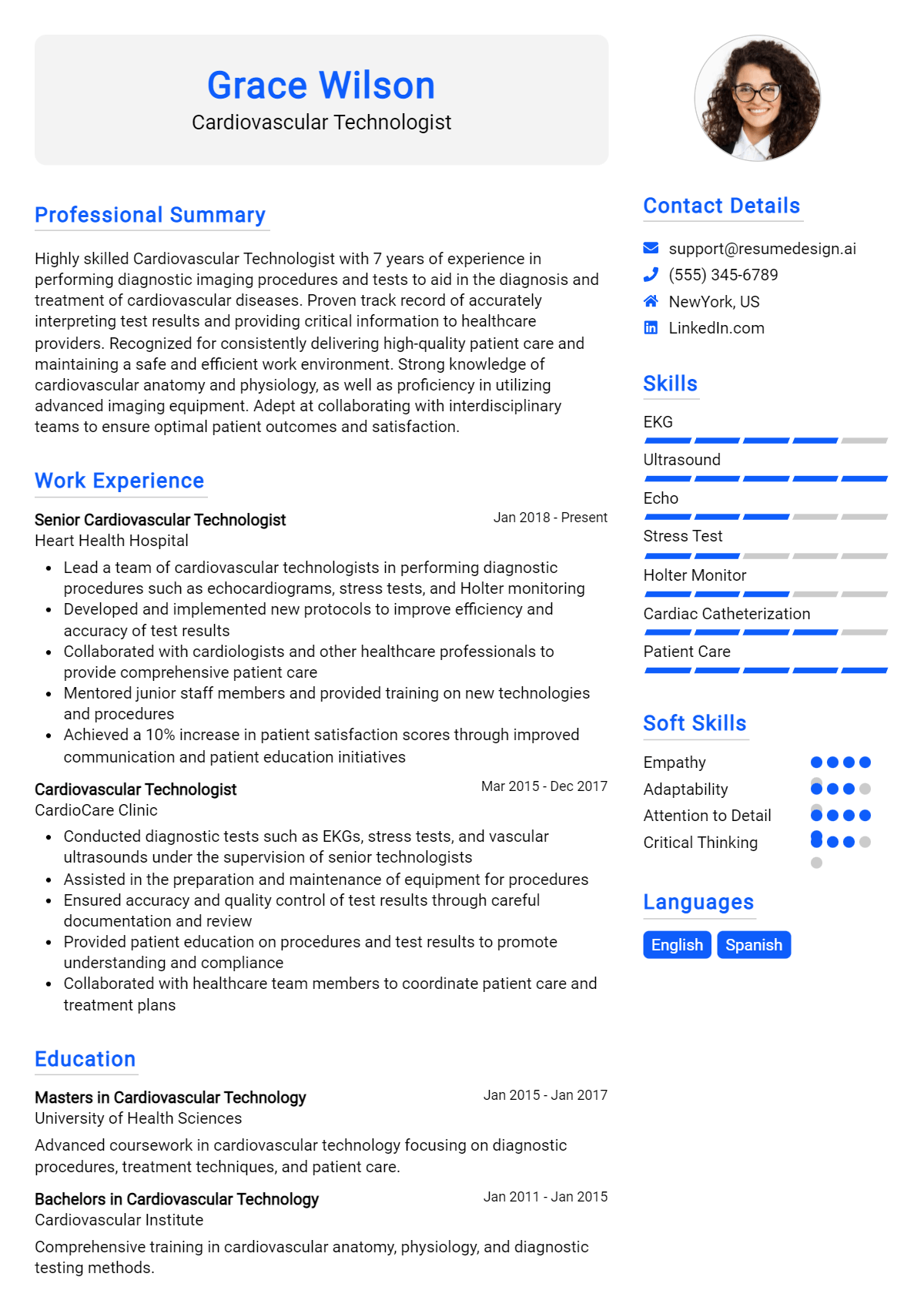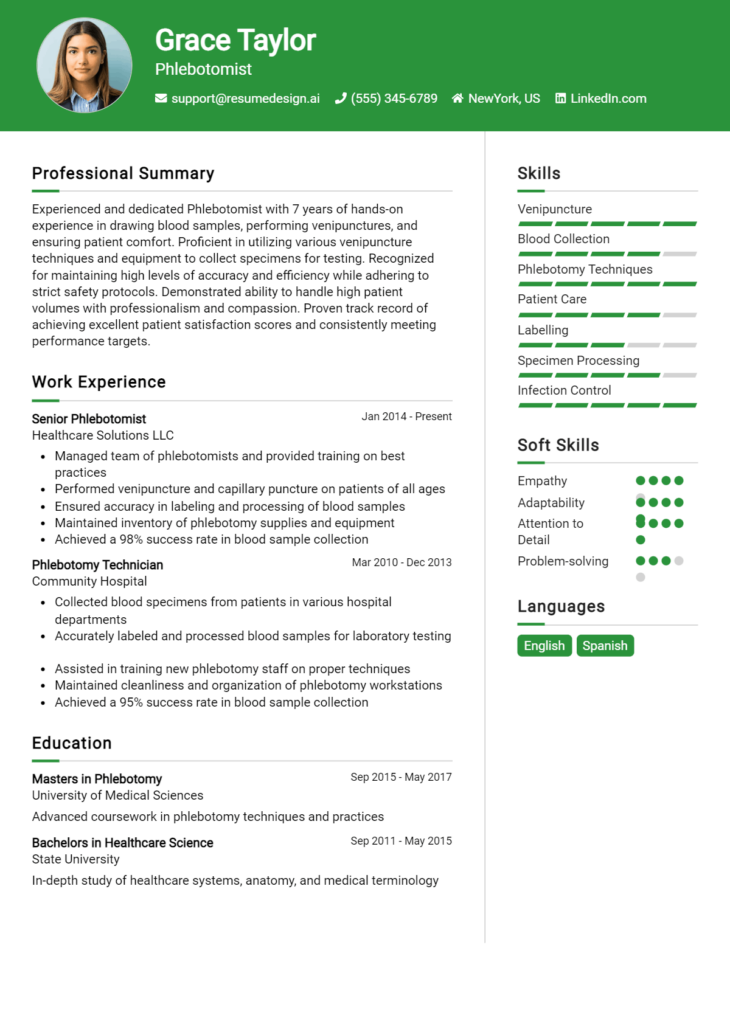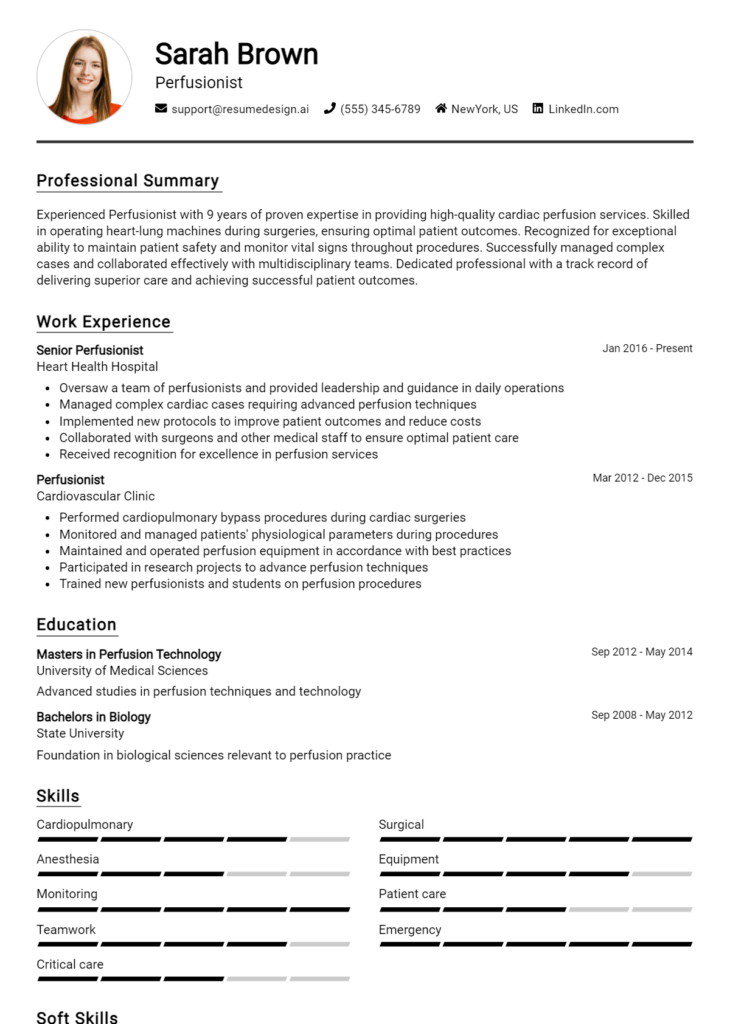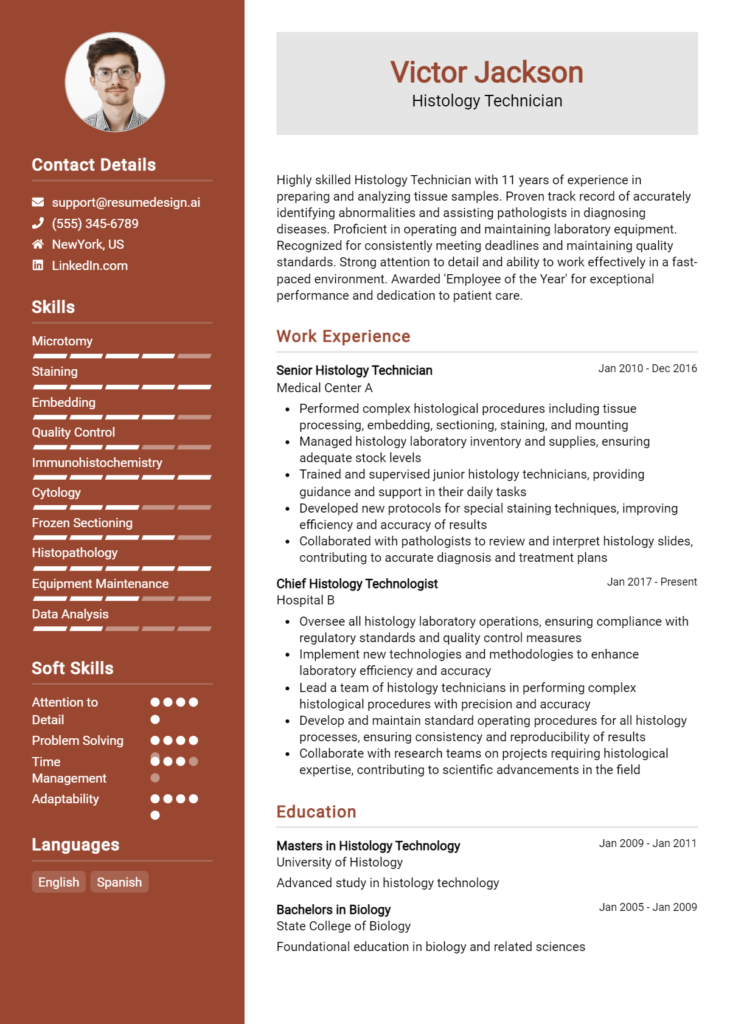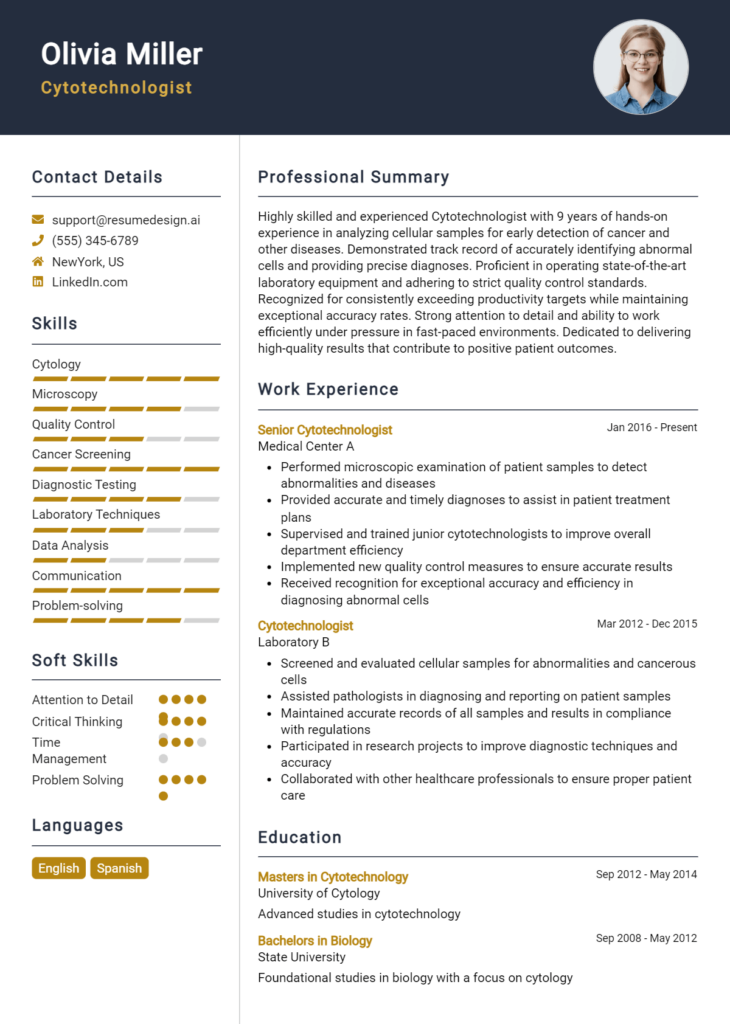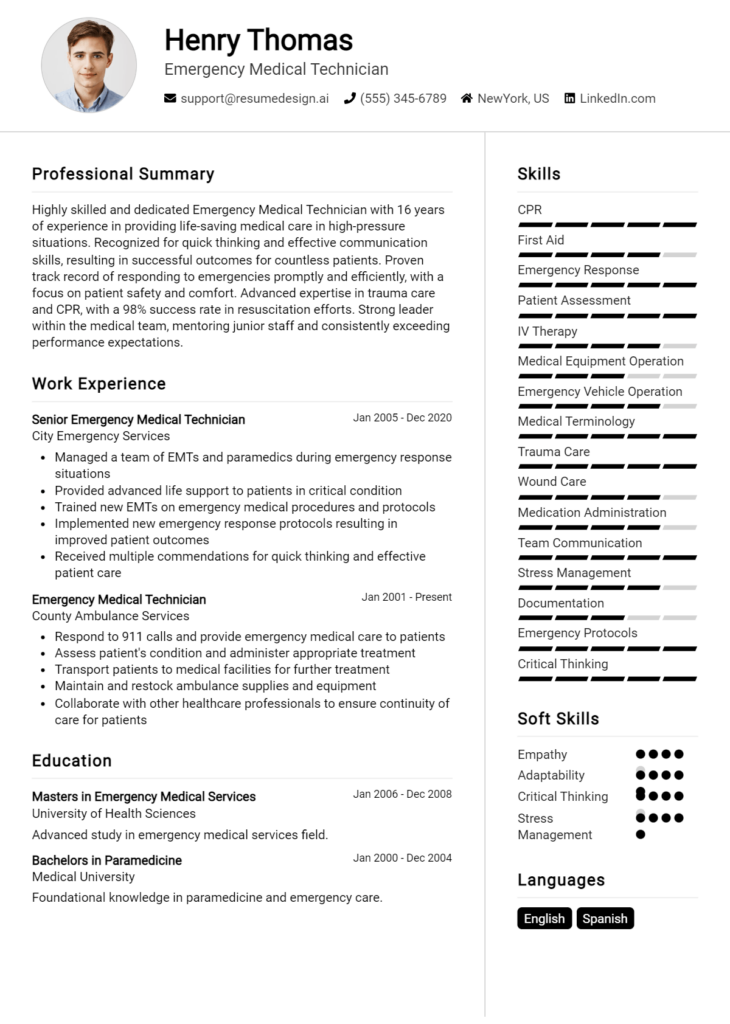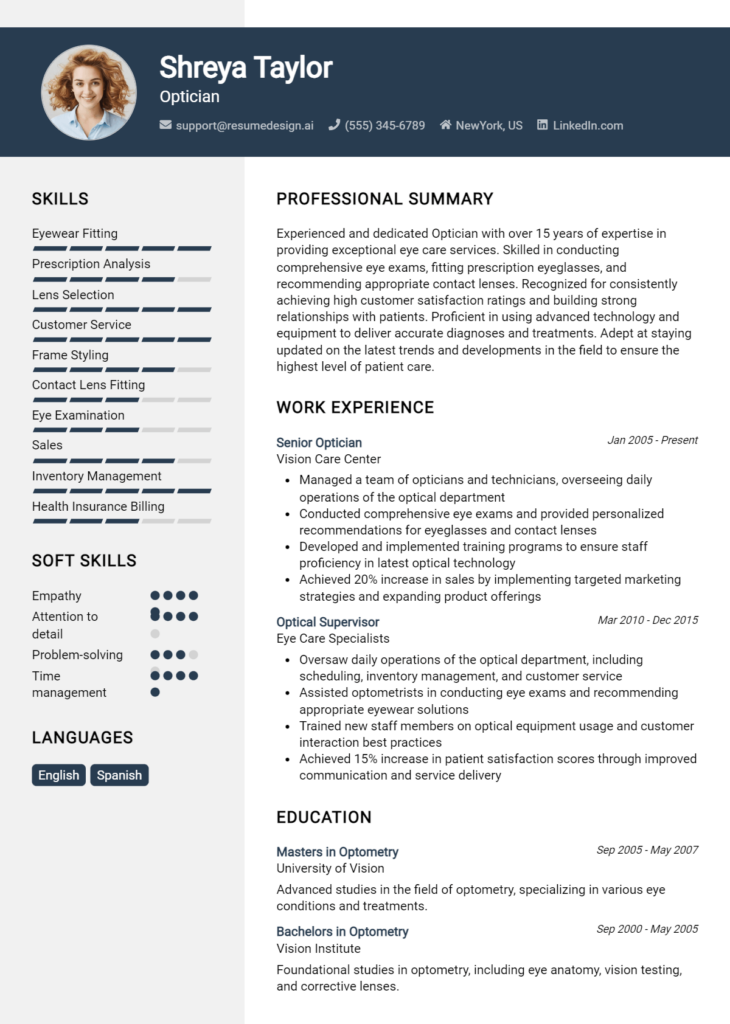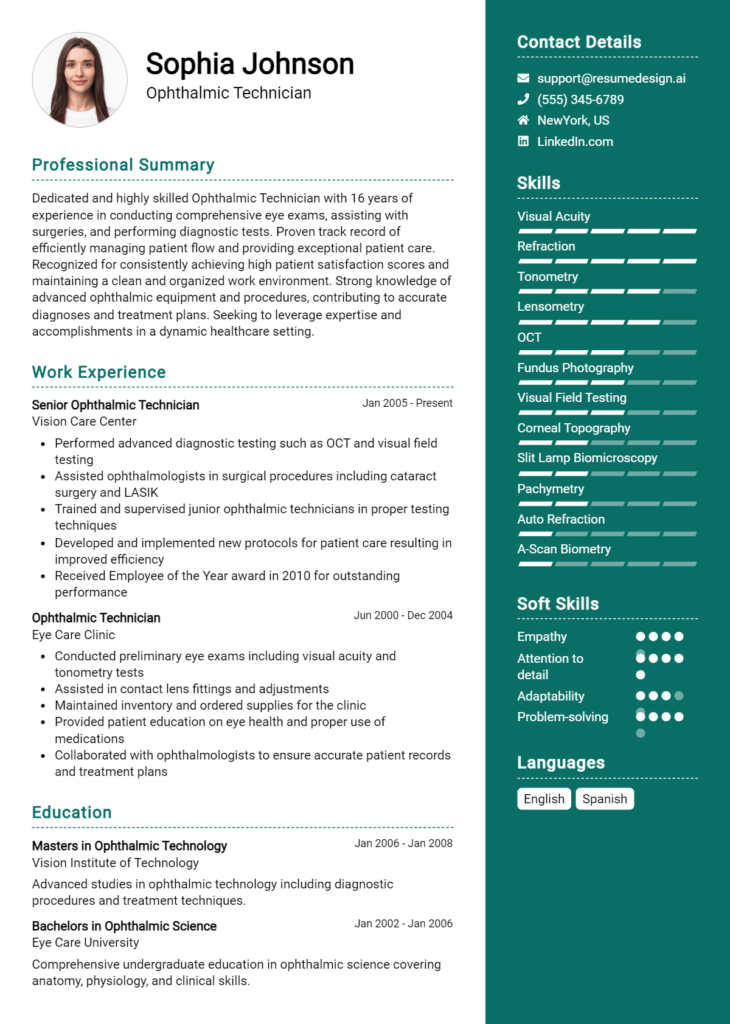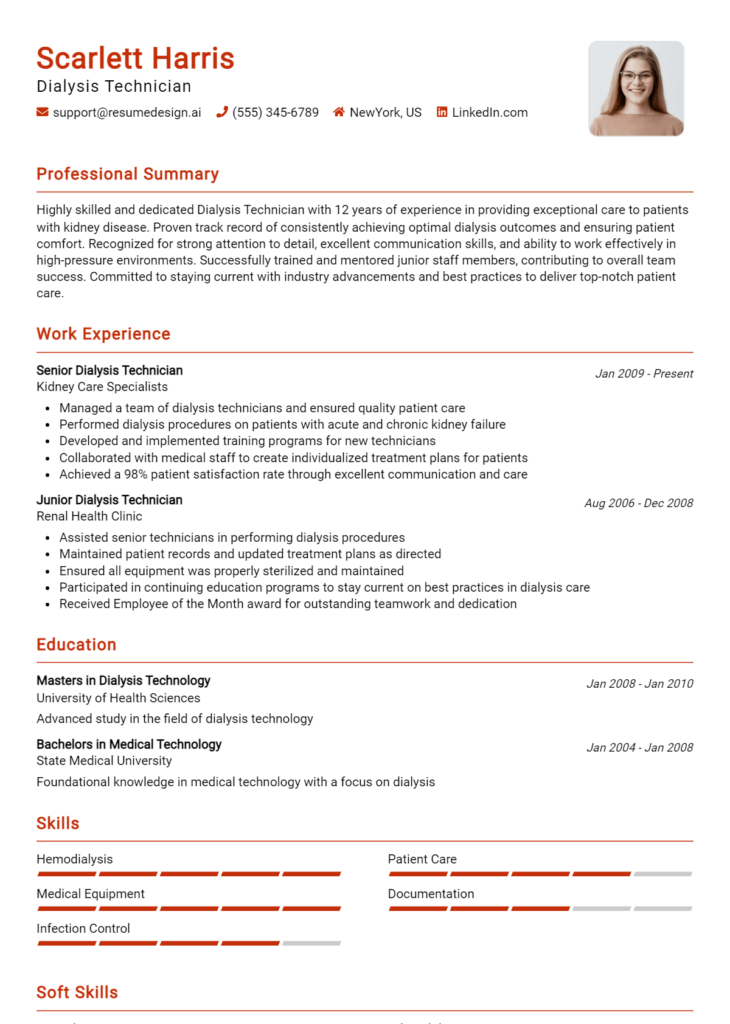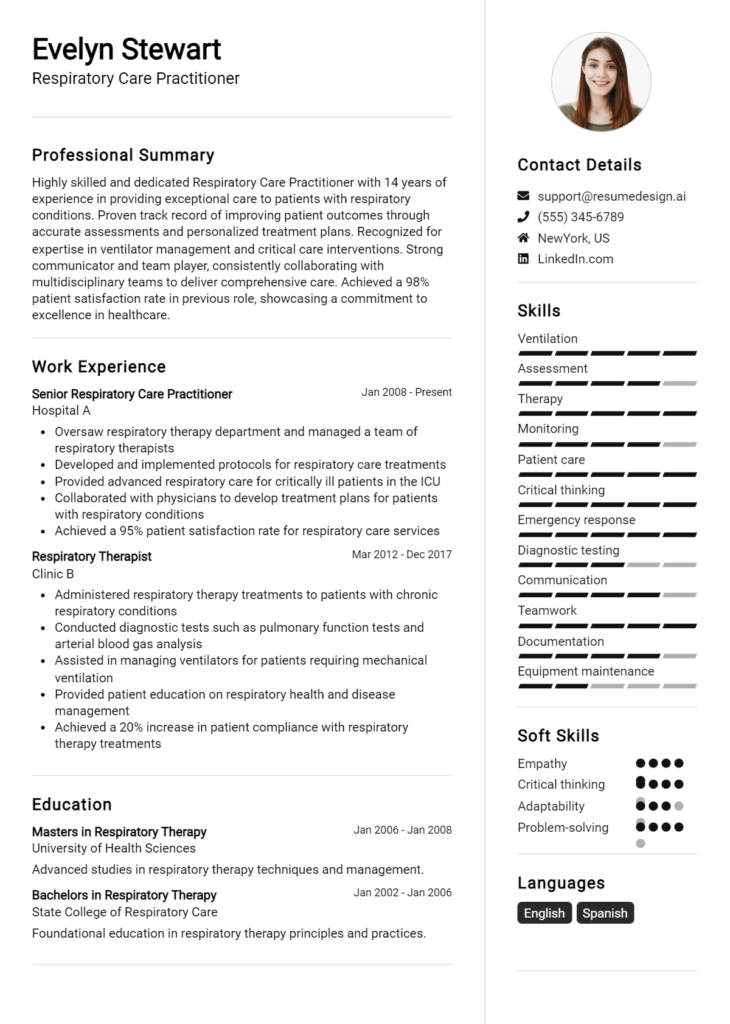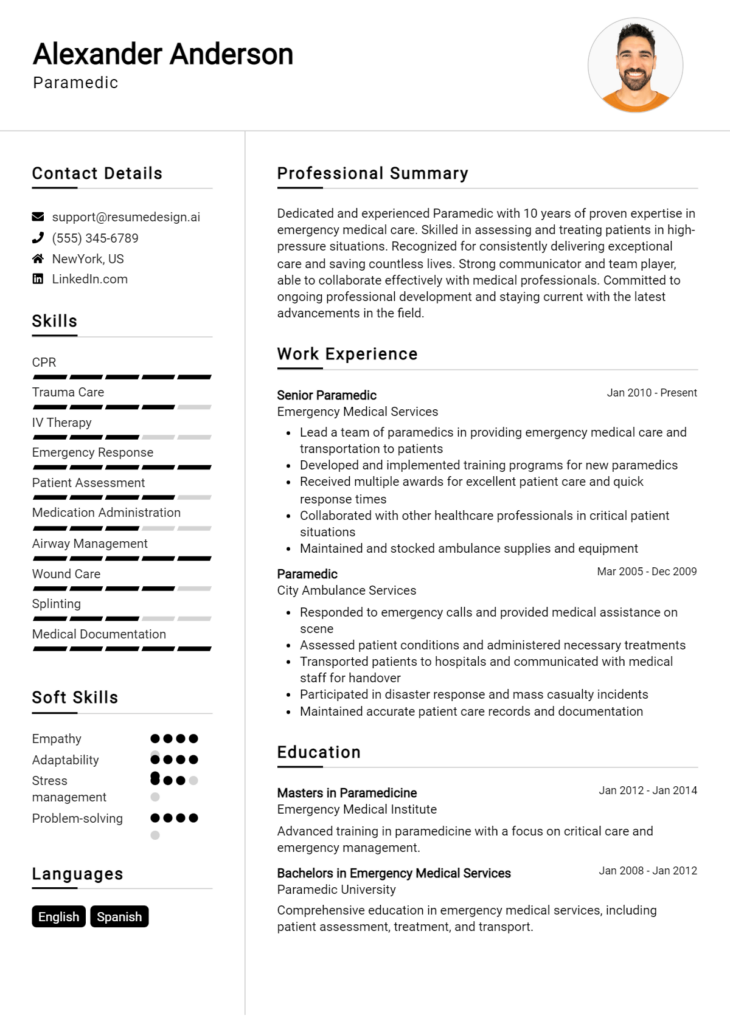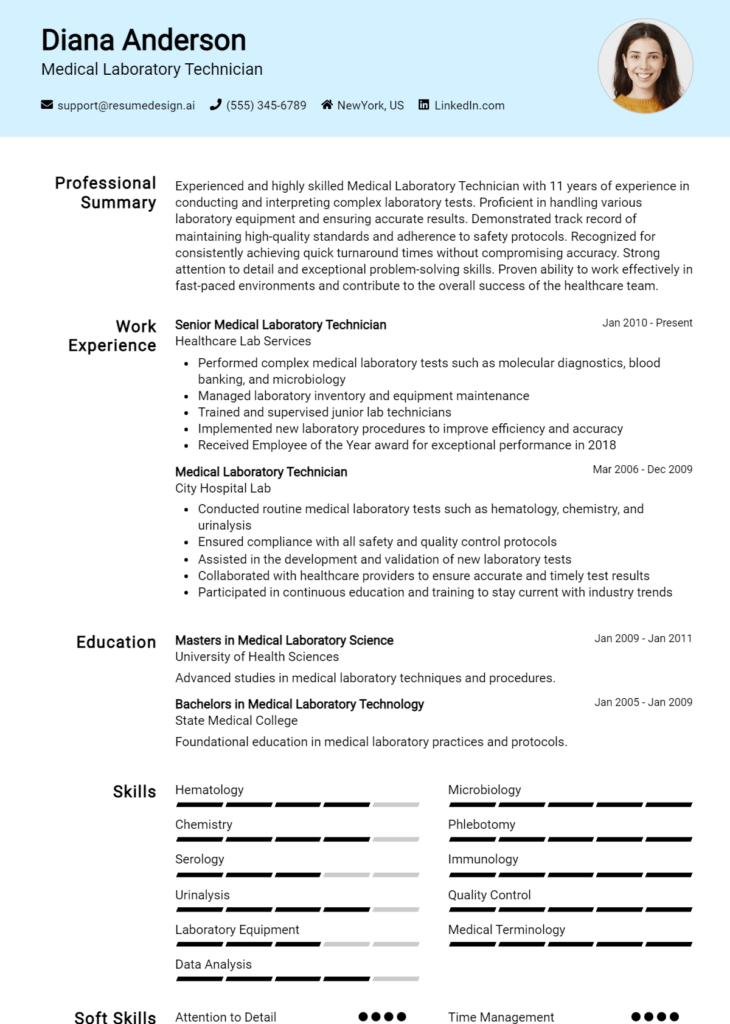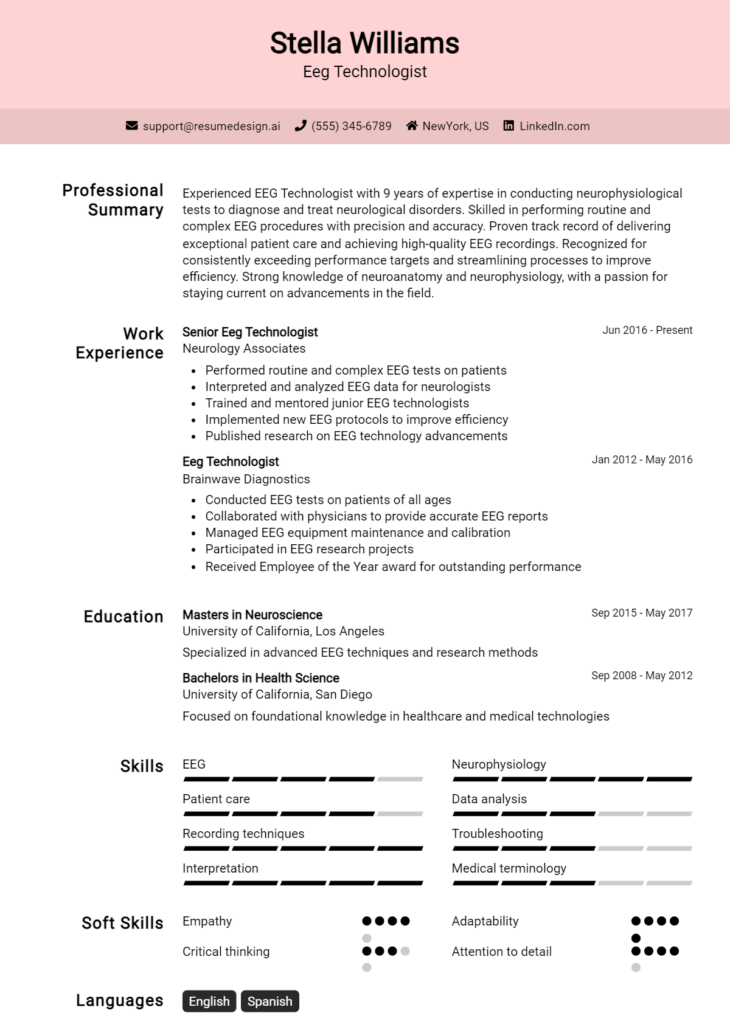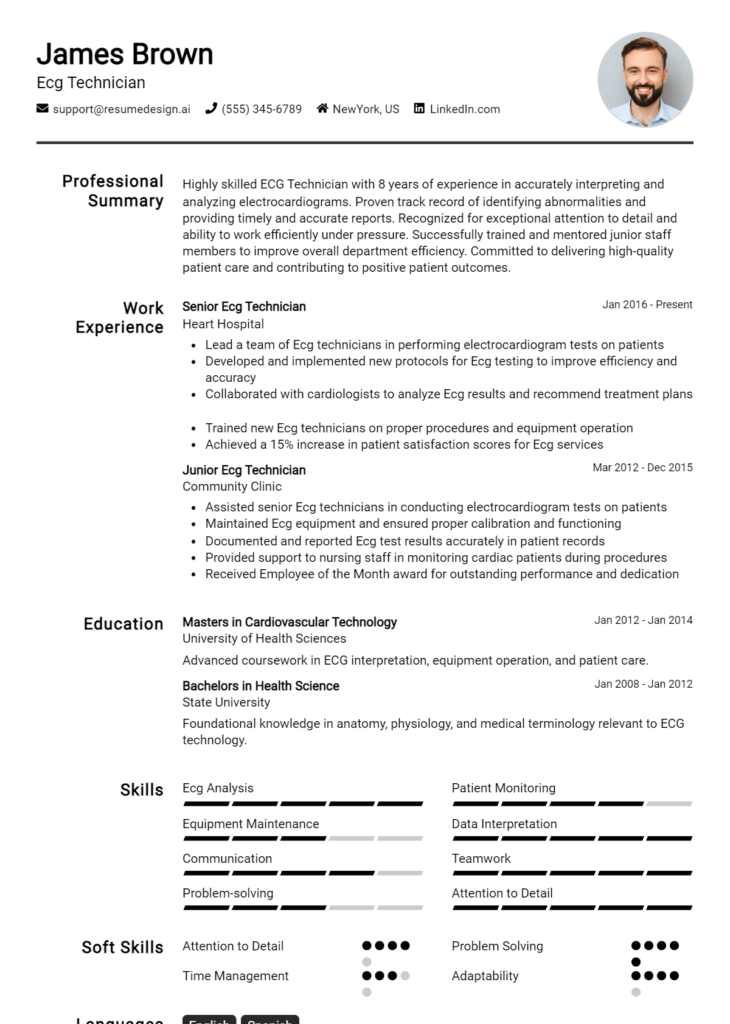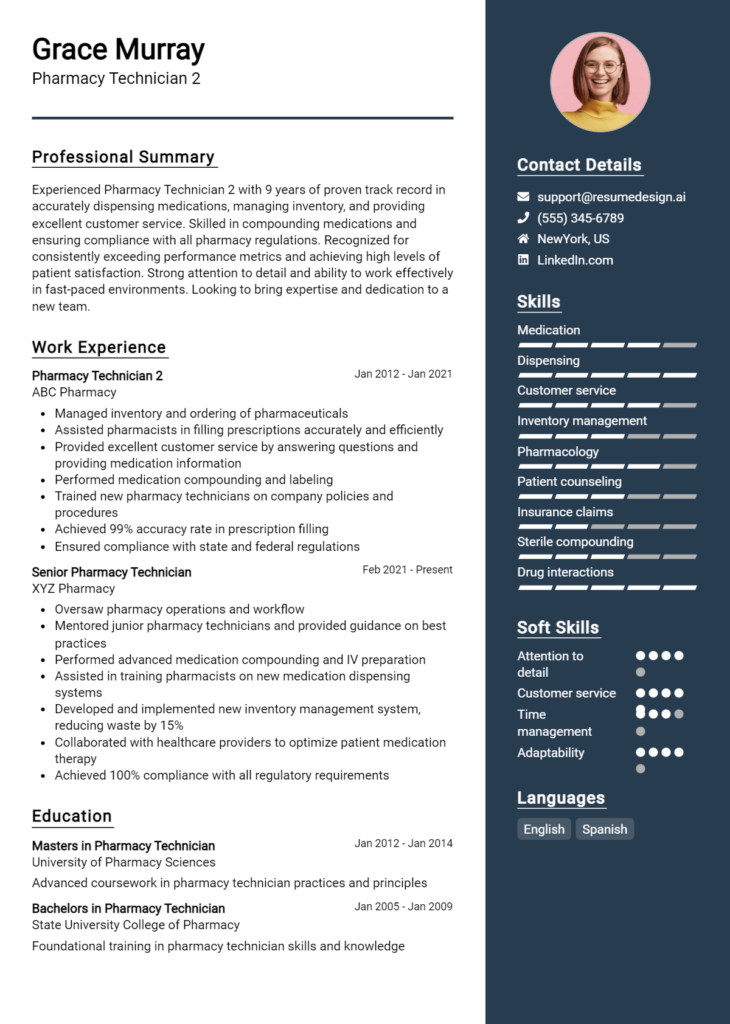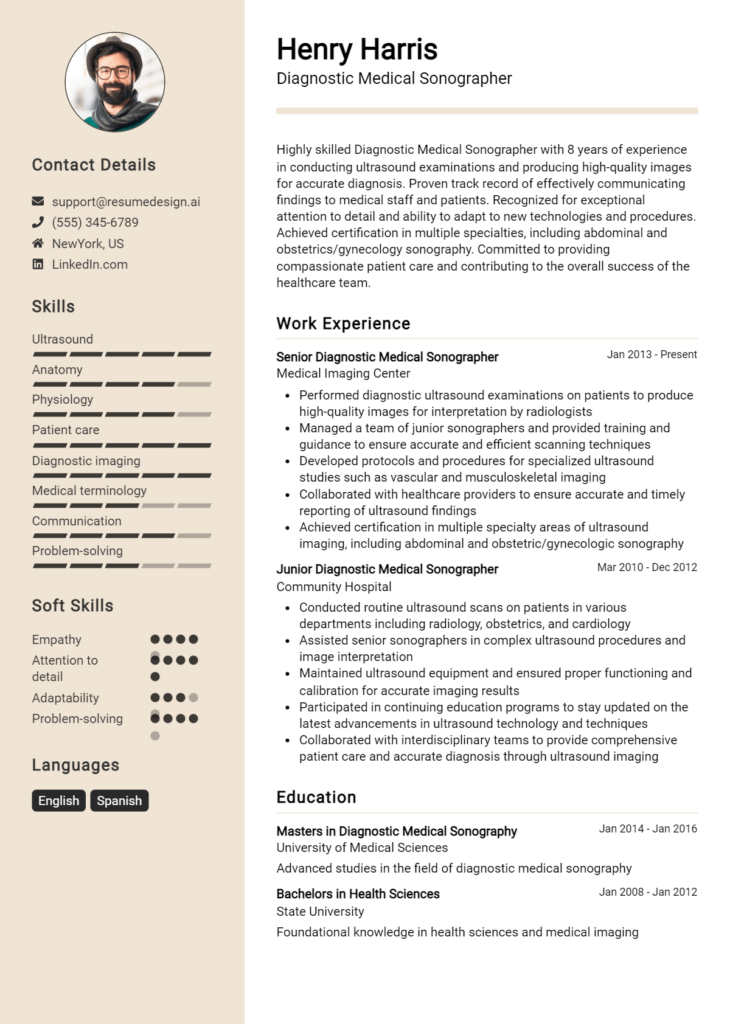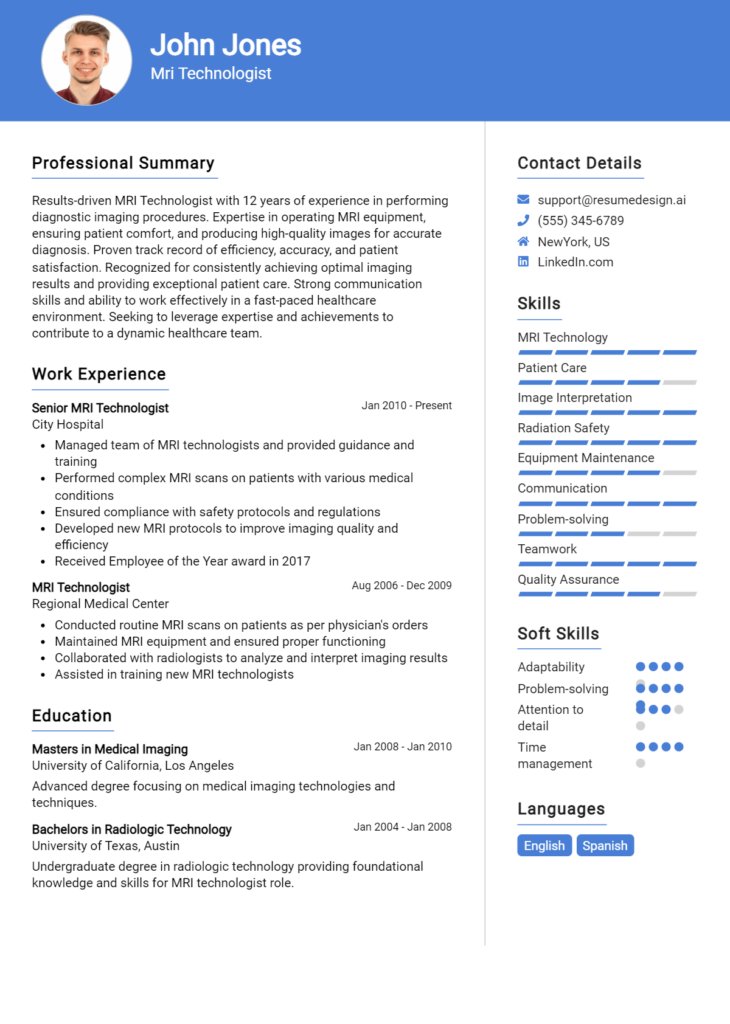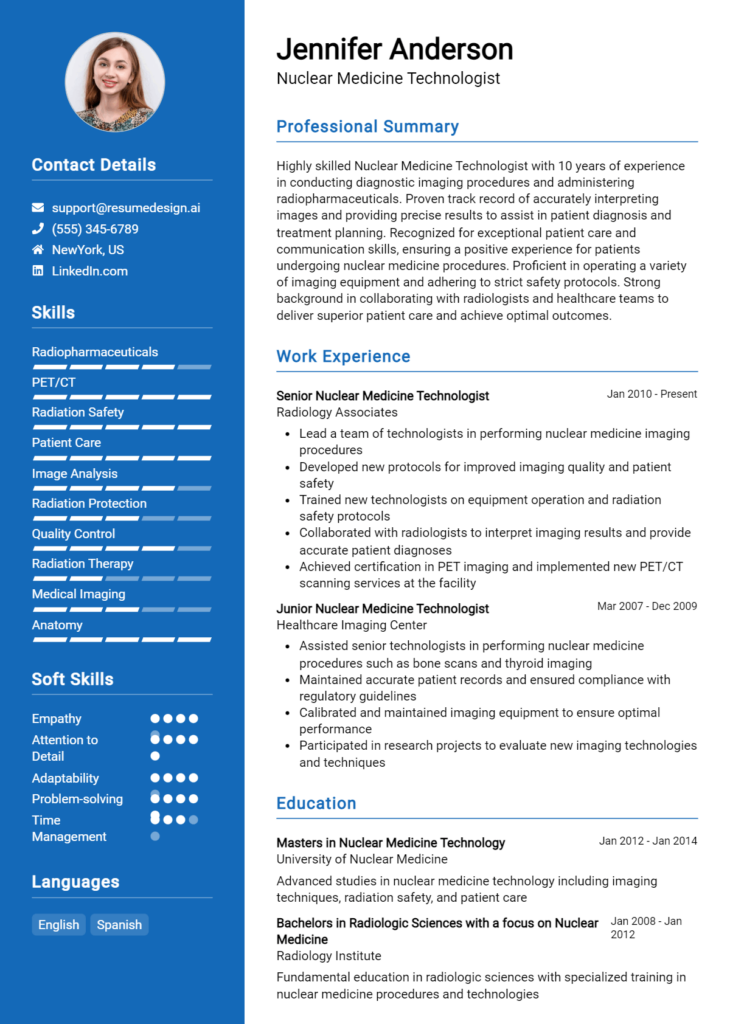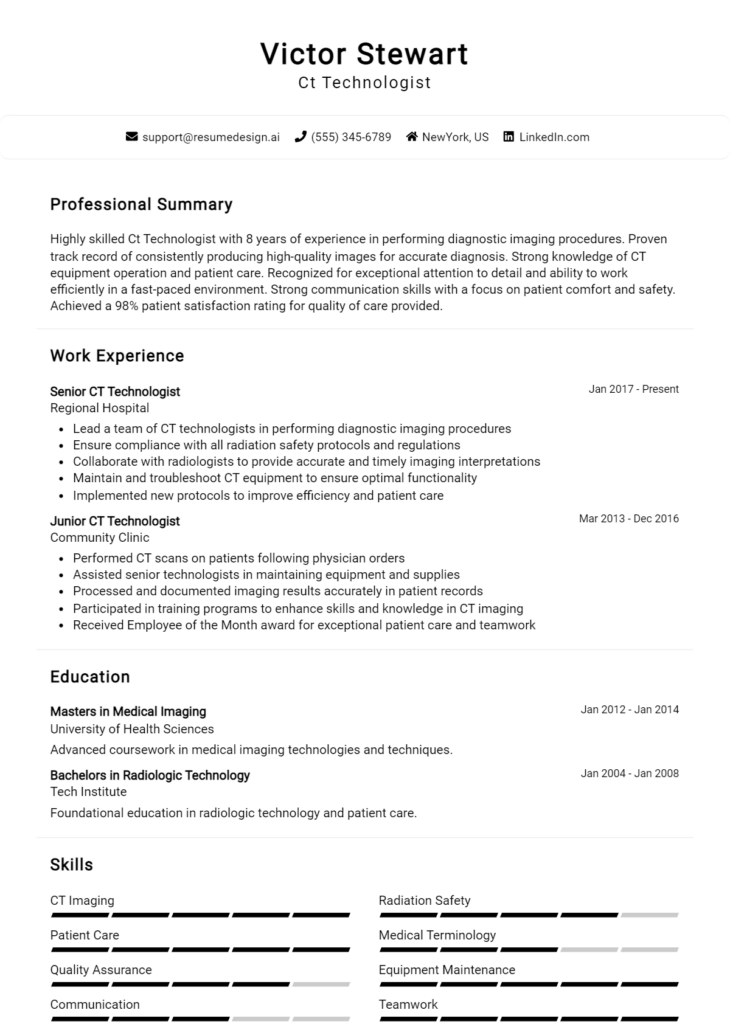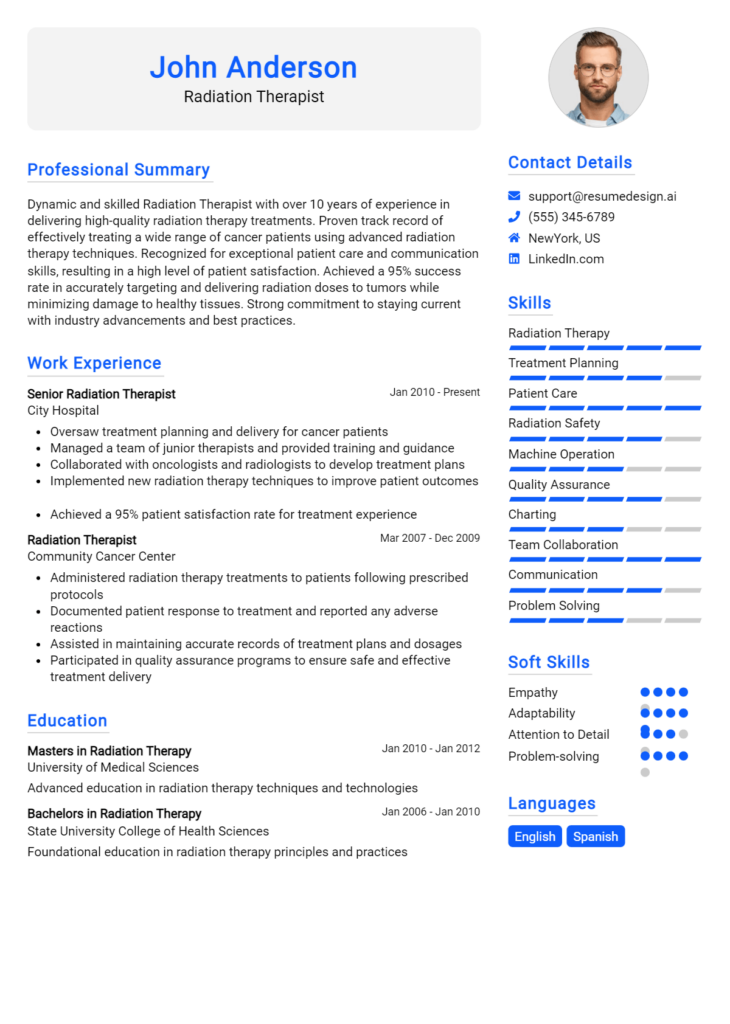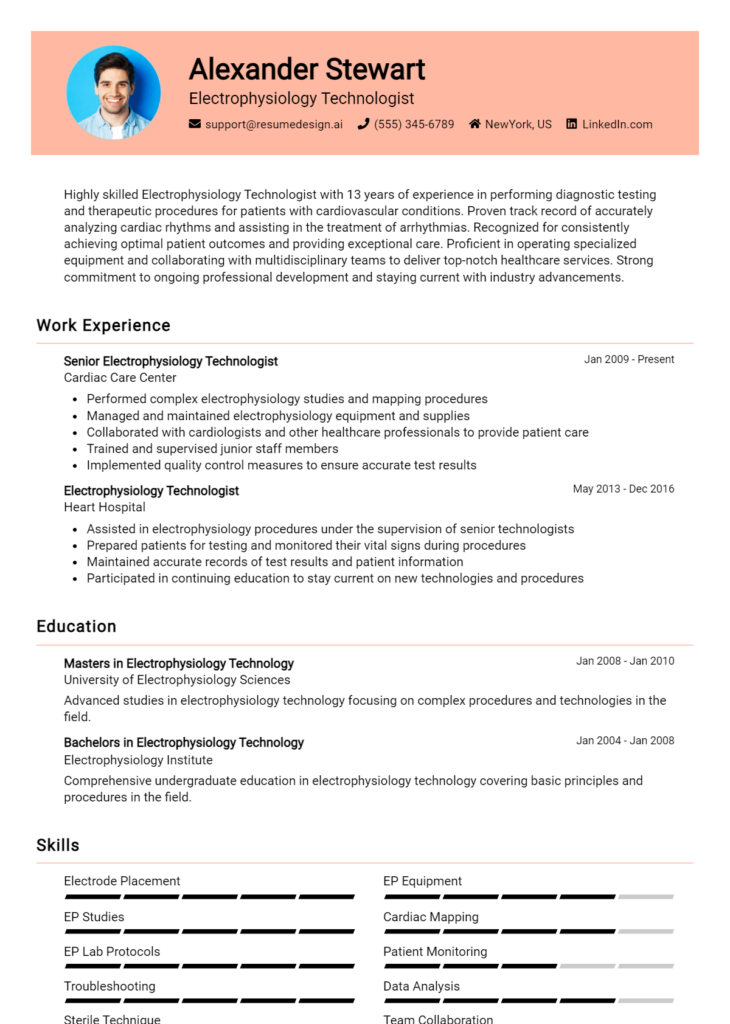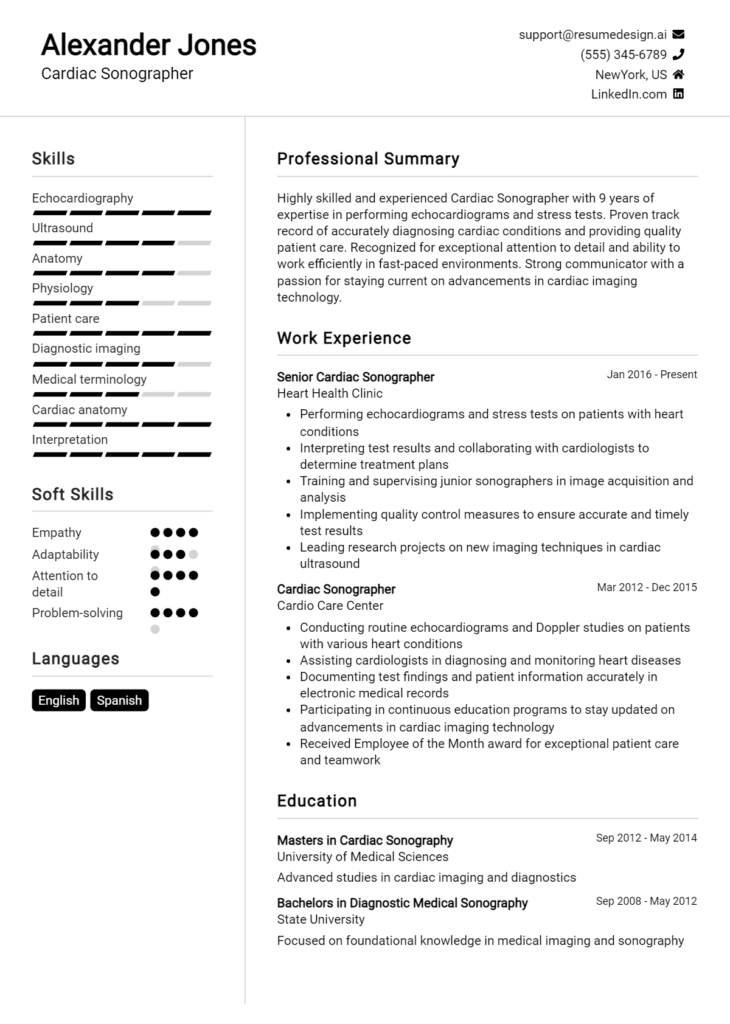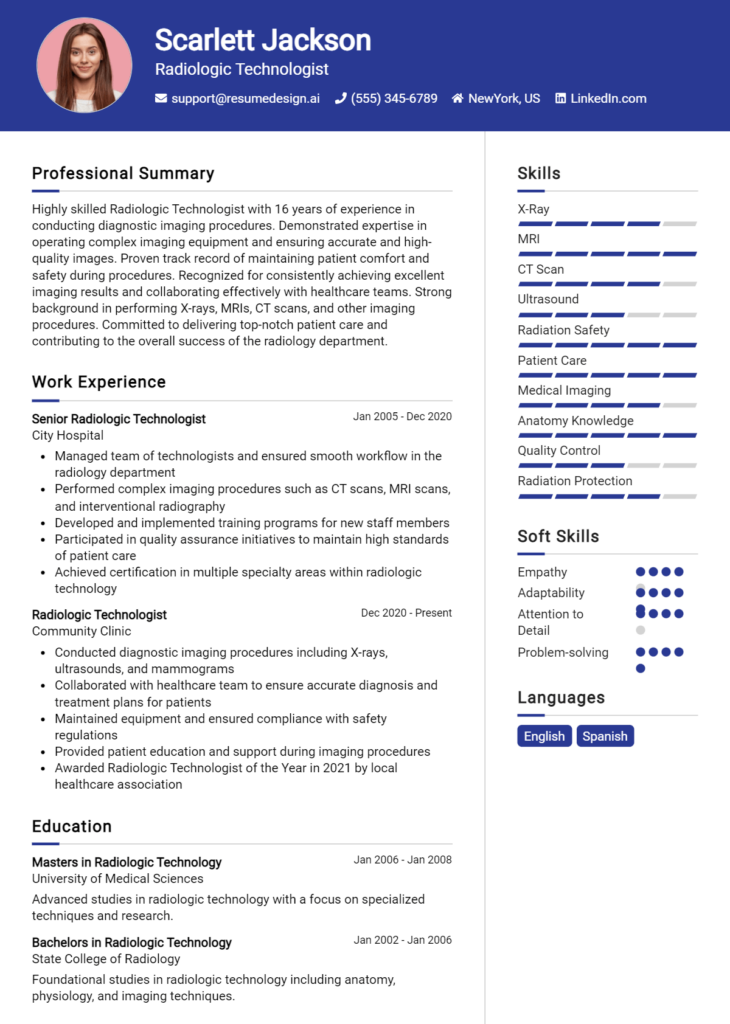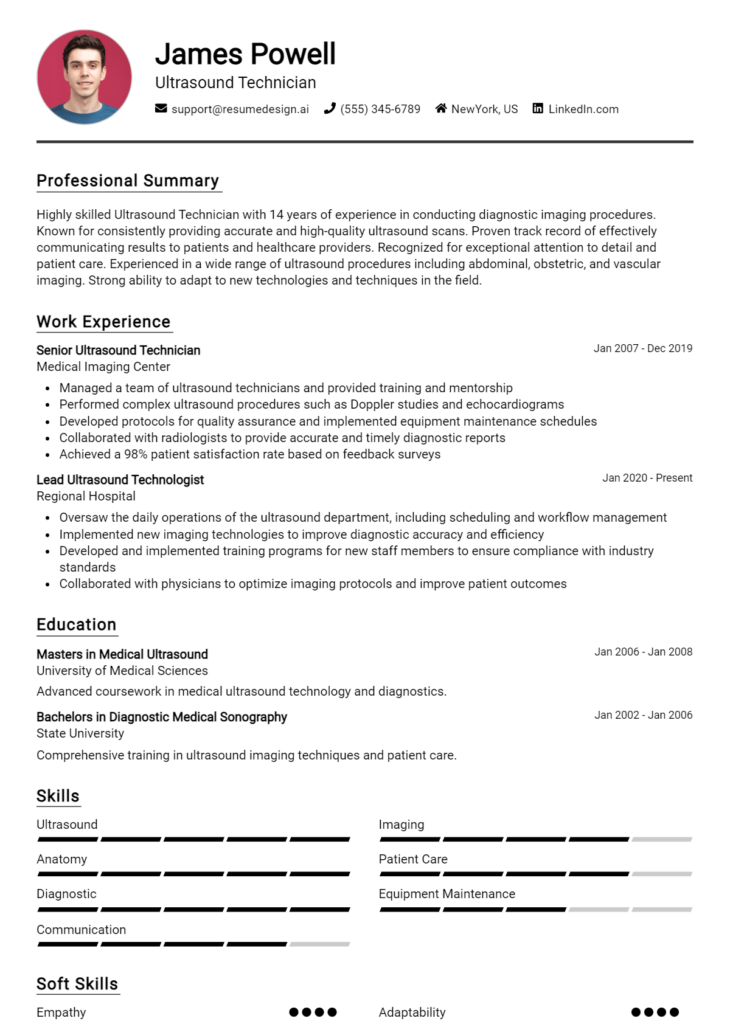Cardiovascular Technologist Core Responsibilities
A Cardiovascular Technologist plays a crucial role in the healthcare team, performing diagnostic tests and procedures that evaluate heart and vascular health. Key responsibilities include conducting echocardiograms, stress tests, and cardiac catheterizations. Success in this role requires a blend of technical expertise, operational knowledge, and strong problem-solving skills, enabling seamless collaboration between departments like radiology and cardiology. These competencies not only enhance patient care but also align with the organization's overarching goals. A well-crafted resume can effectively highlight these essential qualifications, showcasing the candidate's readiness to thrive in this vital field.
Common Responsibilities Listed on Cardiovascular Technologist Resume
- Perform echocardiograms and vascular ultrasounds
- Assist in cardiac catheterization procedures
- Monitor and record patient vital signs during testing
- Prepare patients for cardiovascular procedures
- Analyze test results and report findings to physicians
- Maintain and calibrate cardiovascular equipment
- Educate patients on procedure processes and aftercare
- Collaborate with healthcare teams to develop patient care plans
- Document patient data and maintain accurate records
- Stay updated on advancements in cardiovascular technology
- Ensure compliance with safety and regulatory standards
- Assist in research initiatives and clinical trials as needed
High-Level Resume Tips for Cardiovascular Technologist Professionals
A well-crafted resume is essential for Cardiovascular Technologist professionals, serving as the first impression a candidate makes on potential employers. In a competitive job market, your resume needs to effectively showcase not only your technical skills and experiences but also your achievements in the field. A compelling resume can open doors to opportunities and help you stand out among other candidates. This guide will provide practical and actionable resume tips specifically tailored for Cardiovascular Technologist professionals, ensuring that your qualifications shine through and grab the attention of hiring managers.
Top Resume Tips for Cardiovascular Technologist Professionals
- Tailor your resume to each job description by incorporating relevant keywords and phrases that match the specific requirements of the position.
- Highlight your relevant experience in cardiovascular technology, including internships, certifications, and hands-on training that demonstrate your expertise.
- Quantify your achievements by including metrics, such as the number of procedures performed or improvements in patient outcomes, to illustrate your impact in previous roles.
- Showcase industry-specific skills such as echocardiography, electrocardiogram (ECG) interpretation, and cardiac catheterization techniques that are vital to the role.
- Include your certifications and licenses prominently, as these credentials are crucial in proving your qualifications as a Cardiovascular Technologist.
- Utilize a clean and professional format that enhances readability, making it easy for hiring managers to scan your resume quickly.
- Incorporate relevant continuing education courses or workshops to demonstrate your commitment to staying current in the field.
- Use action verbs to describe your responsibilities and accomplishments, creating a dynamic narrative that captures your contributions effectively.
- Consider including a summary statement at the top of your resume that succinctly encapsulates your experience and career goals, making a strong opening statement.
Implementing these tips can significantly increase your chances of landing a job in the Cardiovascular Technologist field. By presenting a well-structured and tailored resume that highlights your skills, experiences, and achievements, you position yourself as a strong candidate who is ready to meet the demands of the role and make a positive impact in the healthcare industry.
Why Resume Headlines & Titles are Important for Cardiovascular Technologist
In the competitive field of cardiovascular technology, a well-crafted resume headline or title is crucial for standing out to hiring managers. A strong headline serves as an instant introduction to a candidate's qualifications, summarizing their expertise and career achievements in a single, impactful phrase. This succinct representation not only grabs the attention of recruiters but also sets the tone for the entire resume. It should be concise, relevant, and directly related to the job being applied for, ensuring that the candidate's unique value proposition is communicated effectively from the outset.
Best Practices for Crafting Resume Headlines for Cardiovascular Technologist
- Keep it concise—aim for one impactful phrase.
- Focus on role-specific skills and expertise.
- Use keywords relevant to the cardiovascular technology field.
- Highlight any certifications or specialized training.
- Incorporate measurable achievements or accomplishments.
- Be clear and direct, avoiding jargon or vague language.
- Tailor the headline for each specific job application.
- Consider including years of experience to establish credibility.
Example Resume Headlines for Cardiovascular Technologist
Strong Resume Headlines
"Certified Cardiovascular Technologist with 5+ Years of Experience in Diagnostic Imaging"
“Expert in Cardiac Catheterization and Patient Care, Committed to Enhancing Patient Outcomes”
“Results-Driven Cardiovascular Technologist Specializing in Non-Invasive Testing”
Weak Resume Headlines
“Technologist Looking for a Job”
“Experienced Professional in Healthcare”
The strong headlines are effective because they provide specific information about the candidate's qualifications, skills, and experience, making it clear to the hiring manager why they should be considered for the role. In contrast, the weak headlines fail to impress because they are vague and lack focus, offering no insight into the candidate’s unique qualifications or how they align with the requirements of the cardiovascular technologist position. A compelling headline should immediately convey the candidate's strengths and relevance to the job, while generic titles leave recruiters with more questions than answers.
Writing an Exceptional Cardiovascular Technologist Resume Summary
A resume summary is a critical component for Cardiovascular Technologists as it serves as a concise introduction that highlights your key skills, experience, and accomplishments relevant to the role. This brief overview is crucial in capturing the attention of hiring managers, enabling them to quickly assess your qualifications and potential fit for their team. A well-crafted summary should be impactful and tailored specifically to the job you are applying for, ensuring it resonates with the employer's needs and stands out among other applicants.
Best Practices for Writing a Cardiovascular Technologist Resume Summary
- Quantify Achievements: Use numbers and statistics to demonstrate your impact and effectiveness in previous roles.
- Focus on Relevant Skills: Highlight skills that are directly applicable to the job, such as patient care, diagnostic procedures, and technical proficiency.
- Tailor the Summary: Customize your summary for each job application by aligning it with the specific job description and requirements.
- Keep It Concise: Aim for 2-4 sentences that deliver maximum information in a brief format.
- Use Strong Action Words: Begin sentences with powerful verbs to convey your contributions and achievements effectively.
- Showcase Certifications: Mention relevant certifications or training that bolster your qualifications for the role.
- Highlight Collaboration: Emphasize teamwork and communication skills, as these are vital in a healthcare setting.
- Maintain Professional Tone: Ensure that the language used is professional and polished, reflecting your expertise and commitment to the field.
Example Cardiovascular Technologist Resume Summaries
Strong Resume Summaries
Dedicated Cardiovascular Technologist with over 5 years of experience in performing non-invasive cardiac procedures. Successfully increased patient throughput by 30% while maintaining a 98% patient satisfaction rate through exceptional care and attention to detail.
Results-driven Cardiovascular Technologist skilled in echocardiography and stress testing, with a proven track record of reducing patient wait times by 20%. Certified in Advanced Cardiac Life Support (ACLS) and recognized for outstanding teamwork in a high-pressure environment.
Experienced Cardiovascular Technologist with expertise in cardiac catheterization and electrophysiology. Played a key role in a departmental initiative that improved procedural efficiency by 15%, resulting in enhanced patient outcomes.
Weak Resume Summaries
Cardiovascular Technologist with some experience looking for a new job opportunity. I have worked in hospitals and clinics.
Motivated healthcare professional seeking a position in cardiovascular technology. I have skills in patient care and medical procedures.
The examples provided showcase the distinct differences between strong and weak resume summaries. Strong summaries effectively quantify achievements, specify relevant skills, and directly relate to the job, making them compelling to hiring managers. In contrast, weak summaries are vague and generic, lacking measurable outcomes and failing to convey the candidate's unique qualifications, which diminishes their impact in a competitive job market.
Work Experience Section for Cardiovascular Technologist Resume
The work experience section of a Cardiovascular Technologist resume is critical as it provides potential employers with a clear view of the candidate's technical skills, team management abilities, and capacity to deliver high-quality results in a clinical setting. This section allows candidates to demonstrate their hands-on experience with complex cardiovascular procedures and equipment, as well as their contributions to patient care and safety. Quantifying achievements, such as improved patient outcomes or enhanced operational efficiency, and aligning experiences with industry standards are essential for making a compelling case to hiring managers.
Best Practices for Cardiovascular Technologist Work Experience
- Highlight specific technical skills relevant to cardiovascular procedures and technologies.
- Quantify results where possible, such as the number of procedures performed or improvements in patient recovery times.
- Showcase leadership roles in team settings, emphasizing collaboration and communication skills.
- Include any certifications or special training that enhance your qualifications.
- Utilize action verbs to convey a proactive approach in your work experience.
- Tailor your experience to align with the job description and industry standards.
- Incorporate feedback or testimonials from peers or supervisors to reinforce your contributions.
- Provide context for your role in projects or procedures to illustrate your impact effectively.
Example Work Experiences for Cardiovascular Technologist
Strong Experiences
- Conducted over 500 echocardiograms annually, resulting in a 30% increase in early diagnosis of cardiac conditions.
- Led a team of 5 technologists in implementing a new cardiac monitoring protocol, which decreased patient wait times by 20%.
- Collaborated with cardiologists to streamline procedural workflows, enhancing patient throughput by 25% while maintaining high safety standards.
- Trained and mentored junior staff in advanced cardiac imaging techniques, contributing to a 15% improvement in departmental efficiency.
Weak Experiences
- Assisted in various cardiovascular procedures as needed.
- Worked with a team to perform tests and monitor patients.
- Participated in training sessions for new equipment.
- Helped maintain equipment and keep records.
The examples classified as strong demonstrate specific achievements and quantifiable outcomes that underline the candidate's expertise and effectiveness in their role. They reflect a proactive attitude and a focus on teamwork and patient care, making them stand out to potential employers. Conversely, the weak experiences lack detail and measurable impacts, making them less convincing and failing to highlight the candidate's true capabilities and contributions in the field of cardiovascular technology.
Education and Certifications Section for Cardiovascular Technologist Resume
The education and certifications section of a Cardiovascular Technologist resume is crucial as it effectively showcases the candidate's academic foundation, relevant certifications, and commitment to ongoing professional development. This section serves as a reflection of the candidate's qualifications and expertise in a specialized field, emphasizing their ability to meet industry standards and provide high-quality patient care. By listing pertinent coursework, industry-recognized certifications, and specialized training, candidates can significantly enhance their credibility and demonstrate their alignment with the requirements of the job role.
Best Practices for Cardiovascular Technologist Education and Certifications
- Include only relevant degrees and certifications that pertain to cardiovascular technology.
- Use specific degree titles, such as "Associate of Applied Science in Cardiovascular Technology," to provide clarity.
- Highlight industry-recognized certifications like Registered Cardiovascular Invasive Specialist (RCIS) or Registered Diagnostic Cardiac Sonographer (RDCS).
- Detail any specialized training or workshops that enhance your skill set, such as advanced echocardiography or cardiac catheterization.
- List relevant coursework that demonstrates your knowledge in areas like anatomy, physiology, or medical imaging.
- Keep the formatting consistent to ensure the section is easy to read and professionally presented.
- Update the section regularly to reflect any new certifications or educational achievements.
- Consider including your GPA if it is above 3.0, as it can help to further validate your academic performance.
Example Education and Certifications for Cardiovascular Technologist
Strong Examples
- Associate of Applied Science in Cardiovascular Technology, XYZ Community College, 2021
- Registered Diagnostic Cardiac Sonographer (RDCS), American Registry for Diagnostic Medical Sonography, 2022
- Advanced Echocardiography Certification, National Board of Echocardiography, 2023
- Relevant Coursework: Cardiac Anatomy, Hemodynamics, and Medical Imaging Techniques
Weak Examples
- Bachelor of Arts in English Literature, ABC University, 2018
- Certification in Basic Life Support (BLS), 2019 (not specific to cardiovascular technology)
- High School Diploma, DEF High School, 2015
- Online Course in General Health Topics, 2020
The strong examples are considered effective as they directly relate to the field of cardiovascular technology and highlight relevant certifications and coursework that demonstrate specialized knowledge and skills. In contrast, the weak examples are less impactful because they either do not pertain directly to cardiovascular technology or represent outdated or irrelevant qualifications that do not contribute to the candidate's credibility in this specialized healthcare field.
Top Skills & Keywords for Cardiovascular Technologist Resume
In the competitive field of cardiovascular technology, a well-crafted resume that highlights the right skills is essential for success. Employers seek candidates who possess a combination of technical expertise and interpersonal abilities. By showcasing both hard and soft skills, applicants can demonstrate their qualifications and readiness to excel in this critical healthcare role. Comprehensive knowledge of cardiovascular procedures, along with the ability to communicate effectively with patients and colleagues, can set a candidate apart. A focus on relevant skills not only enhances the resume but also reflects the candidate's commitment to professional growth and patient care.
Top Hard & Soft Skills for Cardiovascular Technologist
Soft Skills
- Excellent communication skills
- Empathy and compassion
- Attention to detail
- Strong problem-solving abilities
- Team collaboration
- Adaptability and flexibility
- Time management
- Critical thinking
- Patient education
- Active listening
Hard Skills
- Proficiency in echocardiography
- Knowledge of electrocardiography (ECG/EKG)
- Expertise in vascular imaging techniques
- Understanding of cardiac anatomy and physiology
- Familiarity with medical software and databases
- Ability to perform stress testing
- Competence in data analysis and interpretation
- Familiarity with invasive cardiovascular procedures
- Certification in Basic Life Support (BLS)
- Knowledge of regulatory compliance and safety protocols
By incorporating these skills into your resume, along with relevant work experience, you can effectively present yourself as a strong candidate for the role of Cardiovascular Technologist.
Stand Out with a Winning Cardiovascular Technologist Cover Letter
Dear Hiring Manager,
I am writing to express my interest in the Cardiovascular Technologist position at [Company Name], as advertised on [Where You Found the Job Posting]. With a solid foundation in cardiovascular technology and a passion for patient care, I am excited about the opportunity to contribute to your esteemed team. My experience working in both clinical and diagnostic settings has equipped me with the technical skills and knowledge necessary to excel in this role.
Throughout my career, I have honed my abilities in performing non-invasive procedures such as echocardiograms, stress tests, and EKGs. At [Previous Employer], I collaborated closely with physicians to interpret test results and develop patient-centered care plans. My commitment to maintaining high standards of patient safety and comfort has always been paramount, and I take pride in my ability to communicate effectively with patients, ensuring they understand the procedures and feel at ease during their visits.
I am particularly drawn to [Company Name] due to its reputation for excellence in cardiovascular care and its commitment to innovative practices. I am eager to bring my technical expertise and strong diagnostic skills to your team, contributing to improved patient outcomes and furthering your mission of advancing cardiovascular health. I am also excited about the opportunity to continue my professional development within such a dynamic and supportive environment.
Thank you for considering my application. I look forward to the opportunity to discuss how my skills and experiences align with the needs of your team. I am confident that my dedication to patient care and my technical background make me a strong candidate for the Cardiovascular Technologist position at [Company Name].
Sincerely,
[Your Name]
[Your Contact Information]
Common Mistakes to Avoid in a Cardiovascular Technologist Resume
When applying for a position as a Cardiovascular Technologist, crafting a polished resume is crucial to stand out in a competitive field. However, many candidates make common mistakes that can undermine their chances of securing an interview. By avoiding these pitfalls, you can create a resume that effectively showcases your skills and qualifications. Below are some common mistakes to watch out for when preparing your resume:
Using a Generic Template: Many candidates rely on one-size-fits-all templates that do not highlight their unique skills or experiences relevant to cardiovascular technology. Personalizing your resume can make a significant difference.
Neglecting Relevant Certifications: Failing to prominently display certifications, such as Registered Cardiovascular Technologist (RCVT) or Basic Life Support (BLS), can lead hiring managers to overlook your qualifications.
Overloading with Technical Jargon: While it’s important to demonstrate your technical expertise, using excessive jargon can confuse hiring managers. Aim for clarity and make sure your resume is accessible to readers who may not have a technical background.
Listing Job Duties Instead of Achievements: Simply listing job responsibilities without showcasing accomplishments can make your resume blend in with others. Focus on quantifiable achievements, such as improving patient outcomes or reducing procedure times.
Ignoring Formatting Consistency: Inconsistent formatting, such as varying font sizes or styles, can make your resume look unprofessional. Ensure uniformity in font, size, and spacing throughout the document.
Including Irrelevant Work Experience: While it’s important to provide a comprehensive work history, including jobs unrelated to cardiovascular technology can dilute your resume. Focus on experiences that directly relate to the role.
Omitting Soft Skills: Cardiovascular Technologists require strong communication and interpersonal skills. Neglecting to highlight these abilities can lead to a missed opportunity to demonstrate your fit for a team-oriented environment.
Failing to Tailor Your Resume: Sending out a generic resume for every job application can be detrimental. Tailor your resume to each position by aligning your skills and experiences with the specific requirements outlined in the job description.
Conclusion
As a Cardiovascular Technologist, you play a vital role in diagnosing and treating patients with heart and vascular conditions. Your expertise in performing diagnostic tests, assisting in procedures, and providing patient care is crucial for successful outcomes. Throughout this article, we've explored the essential skills and qualifications necessary for this role, highlighting the importance of technical proficiency, attention to detail, and effective communication with patients and healthcare teams.
In light of the competitive job market, having a polished and professional resume is essential to stand out among other candidates. Now is the time to take action! Review your Cardiovascular Technologist resume to ensure it effectively showcases your skills, experiences, and accomplishments.
To assist you in this process, consider utilizing the following resources:
- Explore resume templates to find a design that suits your style.
- Create a tailored resume using a sophisticated resume builder that simplifies the process.
- Review resume examples to gain inspiration and understand what hiring managers are looking for.
- Don't forget to craft a compelling cover letter with the help of our cover letter templates that complement your resume.
Elevate your job application by leveraging these tools and ensuring your resume accurately reflects your qualifications as a Cardiovascular Technologist. Take the first step today!

